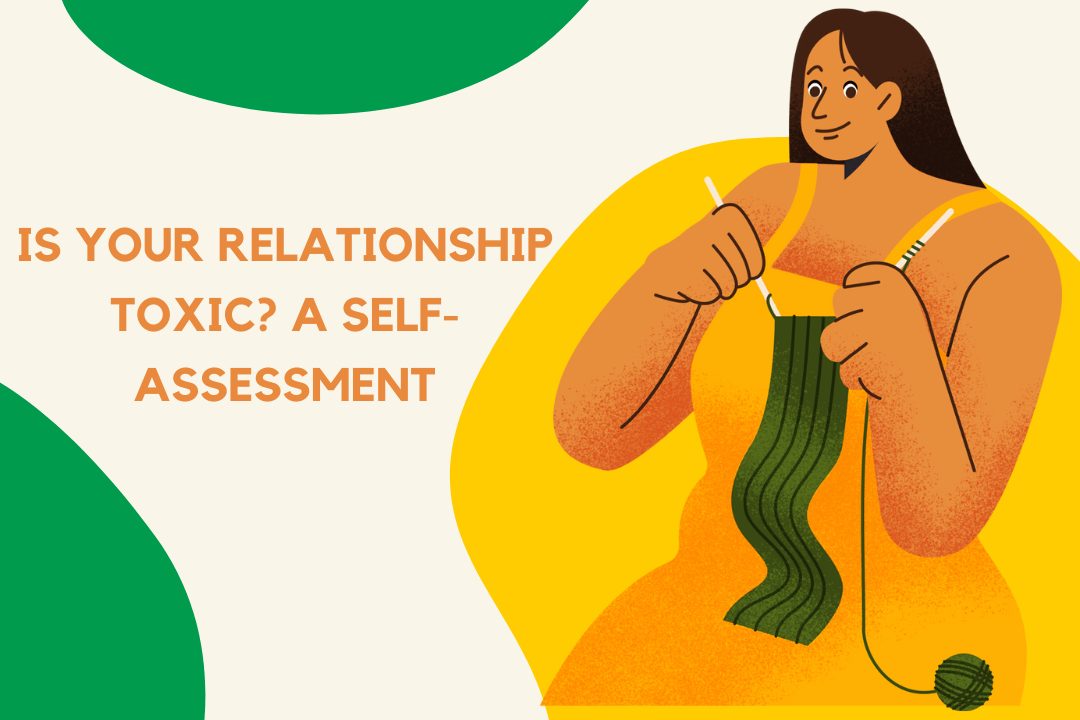
Is Your Relationship Toxic? A Self-Assessment
Toxic relationships are not always overtly abusive but can be harmful in subtler, persistent ways. These relationships may involve manipulation, negativity, or a lack of genuine support, leaving you feeling drained or unworthy.
This checklist aims to help you reflect on whether a relationship in your life might be toxic. Toxicity can exist in various forms—between family, friends, classmates, and partners—and recognizing it can be the first step toward protecting your well-being and seeking healthier connections.
*Disclaimer
This checklist is designed to help you assess whether you might be in a toxic relationship—whether with family members, friends, classmates, or romantic partners. While toxic relationships may not always involve physical harm, they can have a profound impact on your mental and emotional well-being.
This is not a diagnostic tool but a starting point for recognizing patterns that might be harmful to you. If you find these questions resonating with you, consider reaching out to a mental health professional or a trusted person in your life. A healthy relationship should support and uplift you.
Section 1: Emotional Impact and Energy Drain
1. Do you often feel emotionally drained or exhausted after spending time with this person?
2. Does interacting with them frequently cause you to feel anxious or on edge?
3. Do you feel more negative or self-critical after your interactions with this person?
4. Are you hesitant to share your achievements or happy moments with them because of their reactions?
5. Do you find yourself questioning your worth or value after talking to them?
6. Have you noticed an increase in stress or physical symptoms (like headaches) when around them?
7. Do you feel pressured to prioritize their needs over your own, even when it’s inconvenient?
8. Have they made you feel guilty for wanting time to yourself or time with others?
9. Do you feel relieved when you can avoid or limit contact with them?
10. Are you often left feeling misunderstood or unseen, as if your emotions are invalid?
Section 2: Communication Patterns and Manipulation
1. Do they frequently interrupt, talk over, or dismiss what you have to say?
2. Have they used personal information against you or shared it without your consent?
3. Do they manipulate situations to make you feel guilty or responsible for their emotions?
4. Do they use silent treatment or withdraw affection as punishment?
5. Have they frequently lied to you, or do they regularly contradict themselves?
6. Do they use humor or sarcasm in ways that make you feel uncomfortable or belittled?
7. Have they dismissed your concerns as “overreacting” or “being too sensitive”?
8. Do they avoid taking accountability by shifting blame onto you or others?
9. Are their compliments or praise often followed by criticism or a subtle dig?
10. Do they make plans and then change them at the last minute without considering your time?
Section 3: Boundaries and Respect
1. Do they frequently ignore or disrespect your boundaries, even when you clearly communicate them?
2. Have they pressured you to do things you’re uncomfortable with or made fun of your preferences?
3. Do they try to control your interactions with others, including friends, family, or colleagues?
4. Have they ever invaded your personal space or belongings without asking?
5. Do they expect constant access to your time or feel entitled to know where you are?
6. Do they disregard your “no” or act as though you owe them explanations for your decisions?
7. Have they invalidated your need for privacy or independence?
8. Do they make you feel guilty for wanting alone time or time away from them?
9. Are they often dismissive when you express discomfort or a need for personal space?
10. Do they react negatively or with hostility if you assert your own needs or opinions?
Section 4: Support, Encouragement, and Respect for Growth
1. Do they regularly downplay your successes or make you feel small for celebrating them?
2. Have they discouraged you from pursuing personal growth or goals?
3. Do they show a lack of genuine interest in your well-being or personal achievements?
4. Do they make you feel selfish or unreasonable when you want to focus on your own needs?
5. Are they unsupportive or critical of your aspirations, dreams, or career choices?
6. Do they react with jealousy or resentment when you spend time with other friends or family?
7. Have they ever subtly made you doubt your capabilities or self-worth?
8. Do they frequently make you feel that their needs and desires are more important than yours?
9. Are they dismissive or mocking when you share things that matter to you?
10. Have they put you down for wanting to improve yourself or take on new challenges?
Section 5: Trust, Reliability, and Consistency
1. Do they often say one thing and then do another, leaving you feeling uncertain?
2. Have they made promises they repeatedly fail to keep without acknowledging it?
3. Do they regularly cancel plans, show up late, or otherwise behave inconsistently?
4. Are they reliable only when it suits their own needs or interests?
5. Have they ever betrayed your trust or shared confidential information you told them?
6. Do they frequently keep secrets from you, or make you feel like they’re hiding something?
7. Do they only seem interested in you when they want something in return?
8. Have they failed to stand by you in difficult times or turned on you when it mattered most?
9. Do they show a lack of loyalty or commitment when you need support?
10. Are they quick to criticize you for “not being there” for them, but are rarely available for you?
Scoring System
- 60+ “Yes” responses:
This relationship likely contains significant toxic elements. Seeking support from a therapist or counselor can help you evaluate and address these dynamics for your well-being.
- 30–59 “Yes” responses:
There are notable concerns that could indicate a negative impact on your mental health. Talking to a trusted friend, counselor, or mentor might provide clarity and tools to manage this relationship.
- 0–29 “Yes” responses:
While some issues are present, reflecting on boundaries and communication might help you improve this relationship. Consider talking openly with this person or seeking guidance to address areas of concern.
Conclusion
If you found many of these questions describing a relationship in your life, there may be signs of toxicity that could be affecting your well-being.
Toxic relationships, even without physical harm, can deeply impact your self-esteem, stress levels, and overall happiness. It’s never wrong to prioritize healthy connections that uplift and support you. Remember, you deserve to feel valued, respected and cared for.
If you found this checklist useful, check out our full collection of resources. Share these with friends and family to spread awareness and help others recognize important signs.
You might also enjoy exploring our “Resilient Soul Collection” of products which is specially designed for those who have experienced family scapegoating, grown up in dysfunctional families, dealt with narcissistic parenting, or are childhood trauma survivors.



